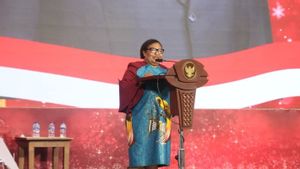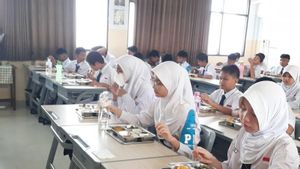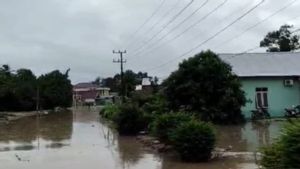JAKARTA - The G20 International Financial Architecture Working Group (IFAWG) in the third meeting held by Bank Indonesia (BI) and the Ministry of Finance virtually on 24-25 March 2022 is expected to realize financial equality and stability in each country.
Quoted from Antara, Sunday, March 27, BI Chief Executive Director of Communications Erwin Haryono said that Indonesia as the G20 Presidency once again emphasized the importance of strengthening the architecture and resilience of the international financial system in the midst of various global risks, especially in the spirit of recovering together and recovering stronger.
Therefore, Indonesia emphasized that no country was left behind and left behind towards financial system stability as one of the prerequisites for achieving a sustainable and inclusive world economic recovery, including for low-income countries in overcoming the pandemic.
IFAWG is a G20 working team that focuses on strengthening support commitments for low-income and vulnerable countries, as well as increasing resilience and promoting stability in the international financial system.
Erwin explained that the results of the IFAWG discussion under the Indonesian G20 Presidency will be reported to obtain further direction from the Ministers of Finance and Central Bank Governors of G20 countries at the April 2022 meeting in Washington DC, United States.
During the two-day meeting, several topics were discussed, including the first, the support of the G20 to low-income countries in facing economic vulnerabilities and overcoming the impact of the pandemic, including efforts to increase financial system resilience through strengthening global financial safety nets.
IFAWG continues to encourage this commitment through the distribution of IMF Special Drawing Rights (SDR) by countries with strong external financial positions, thus welcoming the readiness to operationalize the IMF Resilience and Sustainability Trust (RST).
He said that the RST IMF was one of the options for distributing SDRs to address long-term funding problems, in particular to improve preparedness and response in dealing with a pandemic, as well as dealing with climate change.
The second discussion is the G20's efforts to increase the role of Multilateral Development Banks (MDBs) in supporting the development agenda, where IFAWG emphasizes the importance of financing innovation models while taking into account the capacity and governance of each MDB.
The third topic is the G20's efforts to maintain financial system stability amidst the dynamics of capital flows through strengthening the necessary policy mix, especially in developing countries, so FAWG discussed the development of the Macro Financial Stability Policy Framework by the Bank for International Settlement (BIS) and the Integrated Policy Framework by the IMF.
Erwin said that the two policy mix frameworks are expected to help countries understand the interaction between various policies, including monetary, fiscal, macroprudential, exchange rate policies, and capital flow management policies in overcoming pressures originating from volatility in capital flows and exchange rates.
The fourth discussion, namely conducting a recent assessment of the condition of the debt vulnerability of low-income countries and how to strengthen debt management for these countries.
Furthermore, in the fifth discussion, IFAWG emphasized the importance of debt data transparency and responsible practice of collateralized financing, especially for low-income countries and developing countries.
Furthermore, the IFAWG series will be held through the 4th IFAWG meeting in South Korea on 16-17 June 2022 with the theme "Strengthening Financial Resilience, Diversified Currency in Trade and Finance, MDBs Capital Adequacy Framework, Capital Flows".
The English, Chinese, Japanese, Arabic, and French versions are automatically generated by the AI. So there may still be inaccuracies in translating, please always see Indonesian as our main language. (system supported by DigitalSiber.id)













